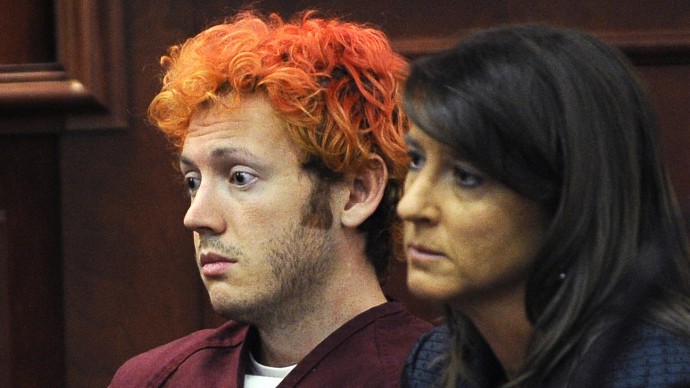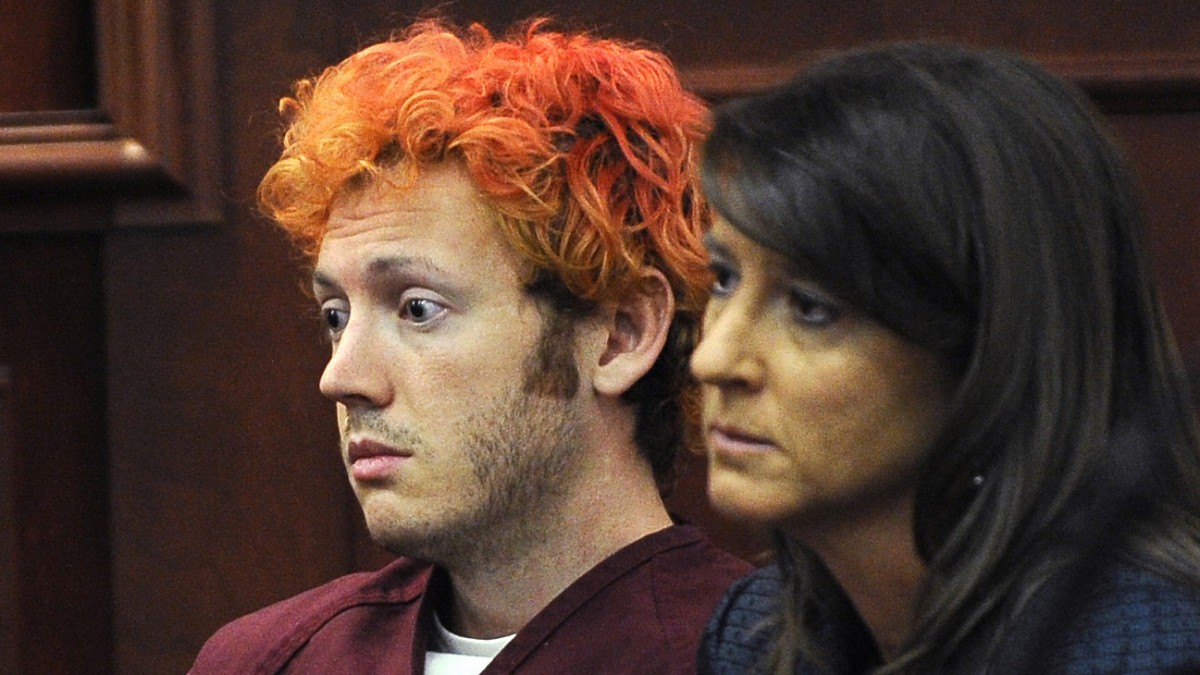
(MintPress) — Just over a year ago, a car bomb detonated in the center of Oslo, Norway, mere feet from the main entrance of various government buildings and the offices of the prime minister and the Ministry of Justice and the Police. The explosion, a terror act charged to Anders Breivik, blew out windows and started fires in the surrounding government buildings. Amid the chaos in the heart of Oslo, Breivik was said to then board a ferry to Utøya, a small island northwest of the country’s economic hub. Upon arriving in Utøya, Breivik opened fire on the Norwegian Labour Party’s AUF summer camp, where 600 teenagers were attending.
The series of terrorist attacks accounted for 77 deaths and at least 319 injuries. Breivik, 33, was identified as a right-wing extremist and having a “militant ideology.”
In the wake of the twin attacks, Prime Minister Jens Stoltenberg promised to ensure that the government would not enact knee-jerk legislation in the name of counter-terrorism. Stoltenberg, a year later, has made good on his promise.
Norway has made no alterations to its security services, police have not been given more powers (Norway police can only carry weapons after obtaining special permission) and terrorism legislation has remained unchanged. Despite the explosion at the central hub of the country’s governmental operations, gates leading to the entrances of parliament remain open and unguarded.
“The Norwegian response to violence is more democracy, more openness and greater political participation,” Stoltenberg has been quoted as saying.
That’s not to say parliament hasn’t considered alterations to the law. Proposed legislation would criminalize participation in terror camps abroad and create the technological infrastructure to allow for wiretapping on threatening calls to government buildings.
“But of course we are not in no way changed,” Stoltenberg said earlier in the week. “This will affect us and it has affected us partly, as you mentioned, by some of the measures we have already implemented related to increased capacity for the police security services and closer cooperation between the army and the police. And I believe that we are going to do more of these kinds of things after the Commission presents its report within the next few weeks.”
A new America
A largely unchanged Norway is geographically, and policy-wise, a long way from the United States. A post-9/11 America has seen a drastic shift toward counterterrorism policies, militarization of police forces and practices that have been alleged to violate the Constitution. And as the country continues to process the events in Aurora, Colo. that saw an alleged shooter, James Holmes, attack moviegoers in a theater, killing 12 and injuring another 58, debate swirls over the country’s gun laws and right to keep and bear arms.
Since the Sept. 11 attacks, the U.S. has spent around $1 trillion on weaponry for troops stationed in the Middle East. Increases in total defense spending has grown exponentially over the past decade as well. In 2001, $16 billion was allocated for homeland security; in 2011, it had ballooned to $69.1 billion, a 301 percent increase after adjusting for inflation. The Pentagon’s base budget in 2001 was $290.5 billion and swelled to $526.1 billion in 2011, a 43 percent increase.
The 9/11 attacks, and every subsequent attack after it such as the one in Colorado, have established what authors Dana Priest and William Arkin say is a culture of fear and anxiety in their book, “Top Secret America: The Rise of the New American Security State.” That fear, both in society and kept alive by media outlets, created a demand for safety from the public, which, in turn, allowed the government to inject billions of dollars into the Pentagon under the guise of national security.
An excerpt from the book reads:
Such dread was a large part of the post-9/11 decade. A culture of fear had created a culture of spending to control it, which, in turn, had led to a belief that the government had to be able to stop every single plot before it took place, regardless of whether it involved one network of twenty terrorists or one single deranged person. This expectation propelled more spending and even more zero-defect expectations. There were tens of thousands of unsolved murders in the United States by 2010, but few newspapers ever blared this across their front pages or even tried to investigate how their police departments had to failed to solve them all over the years. But when it came to terrorism, newspaper and other media outlets amplified each mistake, which amplified the threat, which amplified the fear, which prompted more spending, and on and on and on.
Along with drastic spending increases in the name of security that now account for nearly 20 percent of the annual budget, critics berated the government for dismissing civil liberties for security measures. In the decade following the 9/11 attacks, the Federal Bureau of Investigation (FBI) lobbied for laws to be relaxed in regards to its National Security Letters (NSLs). Those letters can now be served to Internet and telecommunications companies without a warrant to obtain usage records of the companies’ customers.
The PATRIOT Act may be the most studied piece of legislation to be born after the terrorist attacks, if only because very few lawmakers even read it before it was made into law. Signed just over a month after the attacks, the bill reduced restrictions on law enforcement as it pertained to gathering information, including wiretapping. The Electronic Privacy Information Center (EPIC) has called the measure unconstitutional and argued that it gave the FBI a “blank check” to spy on whomever they pleased. Other concerns expressed included the scenario where conversations of law-abiding citizens would mistakenly be intercepted, but no authority figure would be held accountable.
So it comes as little surprise that last week the the Office of the Director of National Intelligence conceded that there have been instances where the Fourth Amendment has been violated under the Foreign Intelligence Surveillance Act (FISA). While the office’s letter did not provide specific examples, it said that practices “sometimes circumvented the spirit of the law.” A provision of the law allowed the government to conduct surveillance of any person for up to one week without a warrant as long as the FISA court was notified.
The willingness to give up freedom
Despite challenges and admittance to the unconstitutional surveillance practices in the U.S. post-9/11, Americans overwhelmingly support the notion of giving up freedoms for the sake of feeling safe. An Associated Press (AP) poll last year found that around 66 percent of respondents said they were willing to give up areas of their privacy to protect against terrorism. Another 46 percent said they would give up whatever rights they had to in order to “fight terrorism.”
Further findings of the poll revealed that: “71 percent of respondents support the use of public surveillance cameras to look for suspicious activity; 58 percent support random searches, naked body scans, and pat downs; 55 percent support unwarranted intrusion of financial transactions; 47 percent support requiring that every American carry a national ID card to show to government agents on demand; and 35 percent support racial profiling.”
Jan Egeland, a former official in the Norwegian foreign ministry and now deputy head of Human Rights Watch, has been critical of the U.S.’ response to terrorism over the last decade, particularly in its treatment of foreign prisoners. Prior to Norway observing the anniversary of Breivik’s attacks, Egeland said America’s use of extraordinary rendition, Guantanamo Bay and the use of torture is counter-intuitive and gives the U.S. a black eye in global relations. He said the U.S. has sunk to the level of the terrorists, which will never allow America to rise above them.
“The only way to really combat terror is to show that we are better than them,” Egeland said.
“Their (the terrorists’) whole point is to create shock and fear and get us to leave our liberal values … and lure us over to their shadowy part of the playing field … we should not let them win.”
The U.S, however, has argued that it is in an unprecedented situation with its war against al-Qaida and the Taliban. Marco Vicenzino, an American security analyst, said that a global threat is something Norway has never had to deal with because Breivik committed an act of domestic terrorism.
“When a nation is under constant threat and has troops around the world, the terrorism dynamic is different,” Vicenzino told BBC. “In a place like Norway you look at it more from a law enforcement perspective. In the United States you view it more from a war perspective, as a nation under attack.”
As Norway’s laws stood as-is after the twin attacks last year, concern has been raised about the U.S.’ gun laws after the movie theater shooting in Colorado. The rhetoric surrounding the shooting has shown that it does not matter the size or scope of an attack in a country, rather the culture in place dictates how a country reacts. After the shootings, people speculated the need for metal detectors in movie theaters across the nation, similar to the response that was elicited after the Columbine High School shootings in 1999.
But changing the rules has shown to be far less-effective than changing the culture. School shootings took place after the Columbine massacre, despite raised awareness of suspicious activities on campuses and increased security measures. America’s response to terrorism and violent acts has affected other countries’ outlook of the U.S., Egeland said.
“The whole (U.S.) struggle against terror lost the moral high ground, You could see how public opinion was lost in Turkey, in Jordan, in moderate countries all over the Middle East,” Egeland said.


